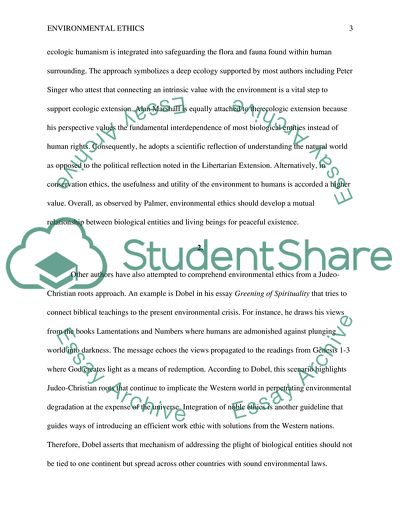Cite this document
(Environmental Ethics as a Branch of Environmental Philosophy Assignment Example | Topics and Well Written Essays - 1250 words, n.d.)
Environmental Ethics as a Branch of Environmental Philosophy Assignment Example | Topics and Well Written Essays - 1250 words. https://studentshare.org/environmental-studies/1830954-environmental-ethics-assignment-1
Environmental Ethics as a Branch of Environmental Philosophy Assignment Example | Topics and Well Written Essays - 1250 words. https://studentshare.org/environmental-studies/1830954-environmental-ethics-assignment-1
(Environmental Ethics As a Branch of Environmental Philosophy Assignment Example | Topics and Well Written Essays - 1250 Words)
Environmental Ethics As a Branch of Environmental Philosophy Assignment Example | Topics and Well Written Essays - 1250 Words. https://studentshare.org/environmental-studies/1830954-environmental-ethics-assignment-1.
Environmental Ethics As a Branch of Environmental Philosophy Assignment Example | Topics and Well Written Essays - 1250 Words. https://studentshare.org/environmental-studies/1830954-environmental-ethics-assignment-1.
“Environmental Ethics As a Branch of Environmental Philosophy Assignment Example | Topics and Well Written Essays - 1250 Words”. https://studentshare.org/environmental-studies/1830954-environmental-ethics-assignment-1.


